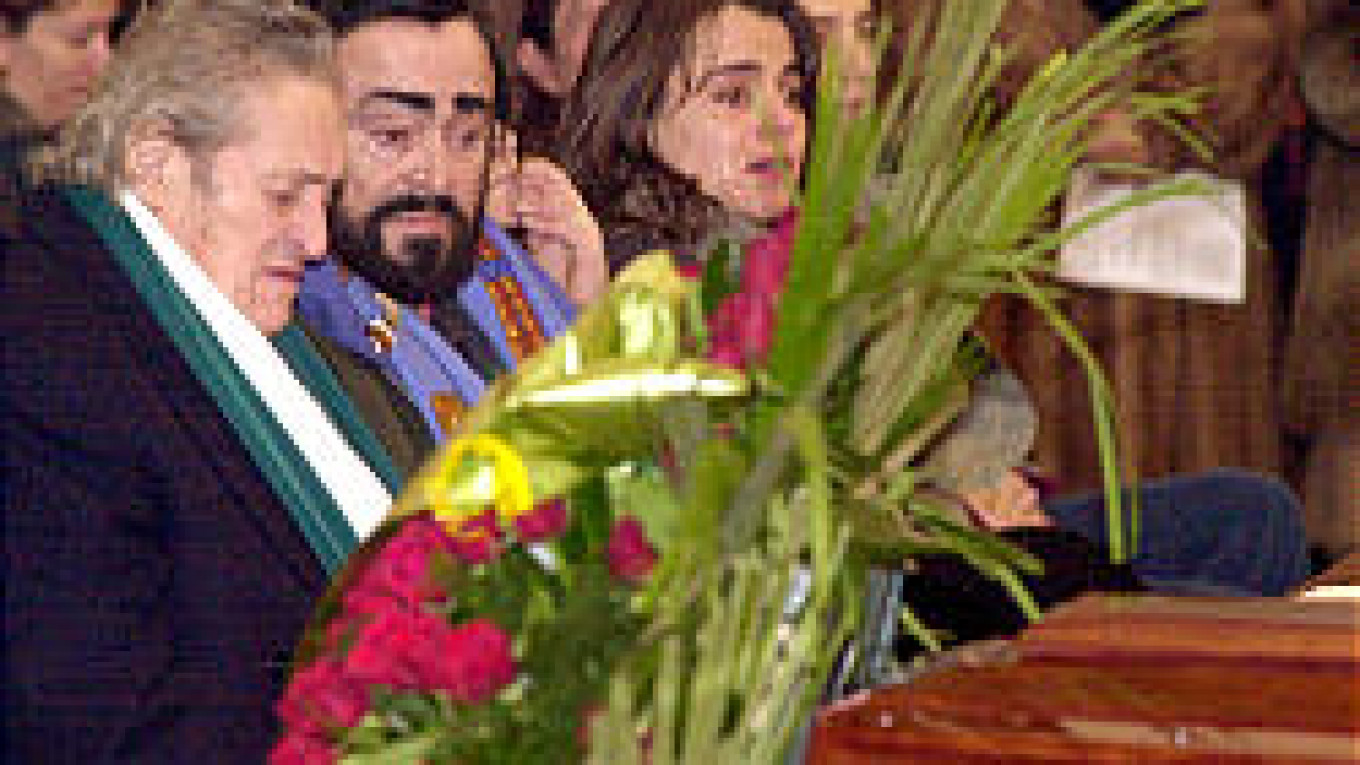In this week's newspapers, most critics smiled on the performance, which many speculate will be the 66-year-old tenor's last in an opera in London.
Critics bemoaned the frayed sets of the Royal Opera's revival of Franco Zeffirelli's 1964 production, but lauded Pavarotti's still-powerful voice.
"Some of the juiciness of its sound, the honeyed quality has gone," wrote Rodney Milnes in The Times, "but the tone is steady as a rock, amazingly so for a man of 66."
Pavarotti, he wrote, retained his "unanalyzable grace and musicianship. He remains a phenomenon."
The voice, agreed The Guardian's Andrew Clements, "remains an extraordinary instrument -- still matchless in its clarity and its ability to project every syllable, and still phrased with instinctive musicality."
But, he conceded, "There is not much acting to go with the voice; there has not been for a good few years now."
The Daily Telegraph's Rupert Christiansen was a dissenting voice.
"It was one of those occasions when critical objectivity can get swallowed up in emotion," he wrote, before ruling that the performance had "lovely moments ... but they seemed like small pebbles being plopped inconsequentially into a big pond."
Pavarotti went ahead with the weekend performance despite the death of his mother in Italy.
The singer was in rehearsals for his performance of the Puccini opera Thursday when he heard his mother, Adele Venturi, 86, had died.
He immediately flew to Modena, Italy to be with his family but returned to London in time to sing. He dedicated his performance that night to his mother.
A spokeswoman for Pavarotti said his family had urged him to go ahead with his performance as it would have been what his mother would have wanted.
Pavarotti, returning to the Royal Opera for the first time in four years, is due to give two more performances of "Tosca" on Friday and Monday.
The funeral ceremony took place in Modena on Sunday.
A Message from The Moscow Times:
Dear readers,
We are facing unprecedented challenges. Russia's Prosecutor General's Office has designated The Moscow Times as an "undesirable" organization, criminalizing our work and putting our staff at risk of prosecution. This follows our earlier unjust labeling as a "foreign agent."
These actions are direct attempts to silence independent journalism in Russia. The authorities claim our work "discredits the decisions of the Russian leadership." We see things differently: we strive to provide accurate, unbiased reporting on Russia.
We, the journalists of The Moscow Times, refuse to be silenced. But to continue our work, we need your help.
Your support, no matter how small, makes a world of difference. If you can, please support us monthly starting from just $2. It's quick to set up, and every contribution makes a significant impact.
By supporting The Moscow Times, you're defending open, independent journalism in the face of repression. Thank you for standing with us.
Remind me later.


